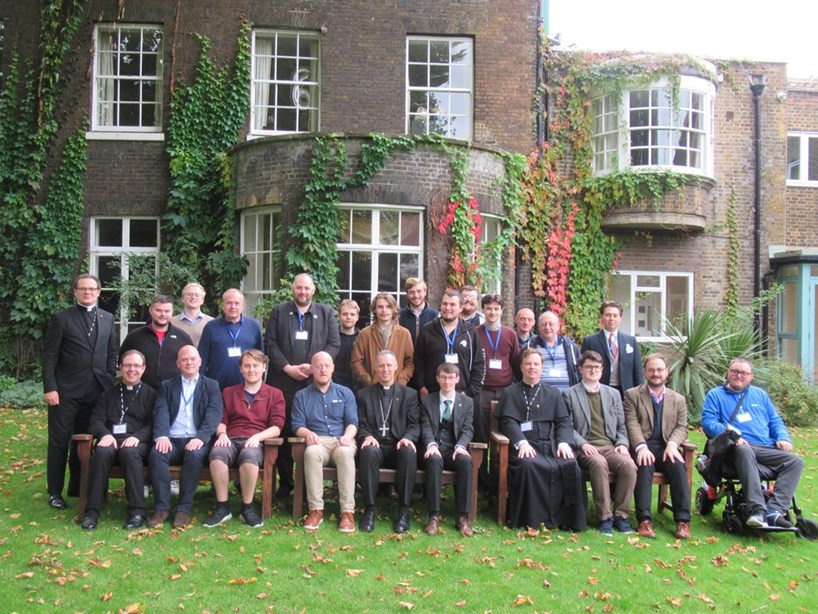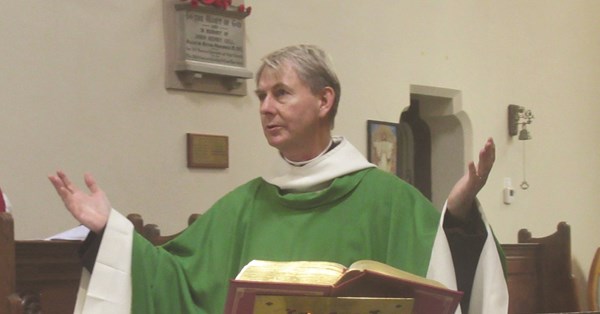THE Additional Curates Society (ACS), a charity, founded in 1837, that at one time funded one third of assistant curates, is working with the Charity Commission to reform its governance, after a complaint was made by a whistle-blowing trustee.
A dossier submitted to the charity in December 2023 and seen by the Church Times raises a series of concerns about the governance of the charity, including the proper use of its funds, which totalled £6.2 million at the end of 2023. It was submitted by a trustee after their decision to resign a month earlier, in a letter that regretted that asking questions had been met with “hostility”.
A central concern is whether the use of funds reflects the charity’s objectives. The ACS’s latest annual report lists its objects and principal activity as “providing support, or assisting in the support of clergy in poor and populous parishes and to make annual grants towards the maintenance of additional clergy in those parishes in need of such assistance”.
Between 2018 and 2023, the number of grants made for the support of clergy ranged from just one (in 2023, totalling £10,000) to five (in 2018, totalling £49,500). The dossier notes that at no point in the past six financial years has expenditure on supporting clergy posts reached even one tenth of the charity’s total income for the year.
In 2023, a total of 26 parishes (a total that has ranged from 15 to 26 in the past six years) received support totalling £91,318 for housing and working expenses. Total income for the year was £692,955, including donations of £132,369 and legacies of £199,199. Expenditure on “generating voluntary income” totalled £181,084 — nearly double the amount spent on grants.
The dossier, sent to Alexandra Buckingham, an ACS trustee tasked with carrying out an internal review of the charity, includes a comparison of the charity’s “underspend” (the difference between income and expenditure) over the past six years, totalling £1.1 million. During the same period, the charity had received donations of £1.2 million. Dividing the amount spent on stipendiary support by the number of individuals in receipt indicated that a maximum of £12,000 was being offered.
“The Church of England is currently facing its greatest ever financial crisis, particularly in the deployment of its clergy,” the former trustee wrote. “Most dioceses are cutting back on their numbers of stipendiary clergy. Set against this backdrop, it seems hard to fathom that a charity with the ACS’s objects is witnessing such high levels of underspending. . . The ACS should not be fund-raising if it has no plans in place to spend the funds raised.”
Despite its £6-million fund, the latest annual report lists a key risk as a drop in the level of donations received.
THE ACS was founded in 1837 by a layman, Joshua Watson, with the support of a Bishop of London, the Rt Revd Charles Blomfield, and a High Church Conservative MP, Sir Robert Inglis. Its object was then, as now, to aid the provision of clergy in poor and populous parishes, with appeals drawing attention to the country’s growing industrial towns where high levels of deprivation could be found.
Its growth in the latter half of the 19th century was dramatic: the charity played a crucial part in meeting the needs of parishes serving the country’s growing urban population. By the early 20th century, it was supporting more than 1200 clergy in more than 1000 parishes.
While the number of clergy supported fell during the century, it remained significant. In 1955, approximately one third of the assistant curates in England and Wales — 760 out of 2400 — depended “for a considerable part of their stipend” on the charity. In 1989, in the wake of the report Faith in the City, it announced that it would use £300,000 of its invested income over three years to provide free curates in urban priority areas.
In 1993, its council announced that it would “not be able to recognise the break in tradition proposed by the General Synod in November 1992”, and would not support women clergy. It was, it said, “prepared to go on spending £250,000 a year to help fund curates in 400 parishes”, referring to its longstanding pledge “that every penny given to ACS by parishes is returned to poor and populous parishes”.
TODAY, the ACS website states that “more recently grants have been applied to help defray the cost to the parish of employing an assistant priest. . . Without doubt, many parishes would never be able to contemplate employing an assistant priest without assistance from ACS. Diocesan Bishops have always been pleased to call on ACS to enable them to place curates in parishes needing financial help.”
The size of the grant is determined by the income of the parish and the amount of money available at the time of the application. Grants are considered quarterly and the ACS says that they are “often pledges that are only paid upon the appointment of a priest”.
Among the requests made in the dossier is that greater transparency be provided by the ACS about “which parishes it has supported and what criteria were used to award those grants”. This should address, it says, “those occasions on which ACS trustees’ and ACS staff members’ own parishes have benefited from ACS grants”. It records that, in November 2023, grants made to parishes in Truro and Lincoln were “scaled back . . . even though the charity has ample funds to meet those grant requests in full”.
 Additional Curates SocietyThe ACS Vocations Conference in October
Additional Curates SocietyThe ACS Vocations Conference in October
The latest annual report observes that in recent years there has been a decline in the number of curates being ordained, and says that “larger grants have been given to fewer parishes instead of modest grants to a large number of parishes”.
With reference to the “alarming rate of parish vacancies” due to the age of clergy and retirement rate, it states: “The trustees believe that the main emphasis of the Society should be concentrated on the encouragement of vocations within the Catholic constituency.” In 1973, the charity observed that as “there is no point in collecting money to pay for assistant curates if there are no assistant curates to, pay” (News, March 23 1973). The dossier queries the emphasis, drawing attention to the existence of the Anglo Catholic Ordination Candidates Fund, which has a £5.4-million fund.
SINCE 2008, the ACS has been led by Canon Darren Smith, its general secretary and only full-time employee. Ordained in 1986, he served his title at the Ascension, Leicester. The Charity Commission records that Canon Smith serves on the boards of several other Anglo-Catholic charities. He is treasurer-general of the Confraternity of the Blessed Sacrament, chair of the Church Union and of the Guild of Servants of the Sanctuary. All three charities are based at the ACS headquarters in Birmingham, opened in 2018 (News, 14 September 2018).
The ACS dossier asks questions about expenditure on the Birmingham property, which also serves as Canon Smith’s living accommodation. More broadly, it raises concerns about the financial governance of the charity, listing a lack of annual budget, register of interests, quarterly management of accounts, and monitoring or sign-off of the general secretary’s expenses and the corporate credit card. “There is no allegation being made of financial impropriety,” it says. “However, the absence of basic financial processes would certainly make financial impropriety easier to undertake and harder to detect.”
Concerns have also been raised about use of the furlough scheme, from which the ACS received £54,548 in 2020 through to January 2021.
UNTIL November 2024, the ACS was chaired by the then Bishop of Wakefield, the Rt Revd Tony Robinson. In November 2023, the whistle-blowing trustee raised a complaint about the conduct of both Bishop Robinson and Canon Smith.
The trustee complained that, after they had asked for a meeting of the trustees without the general secretary present, Bishop Robinson had breached confidentiality by informing the general secretary. Canon Smith had subsequently written to the trustee an email describing the trustee’s conduct as “very destructive”.
“I have merely asked a few basic questions and requested a meeting of Trustees/Directors to seek to improve the charity’s functioning . . . and I have been met with deep hostility,” the trustee wrote. Their dossier raises a concern that several trustees, including the then chair, Bishop Robinson, had exceeded their nine-year terms.
The complaint was considered by the new chair, the Bishop of Beverley, the Rt Revd Stephen Race. In a letter sent in February 2025, he informed the former trustee that complaints about a breach of confidentiality and Canon Smith’s email had been upheld. It stated that the trustees had “sought advice from charity law specialists in order to ensure that ACS’s governance is fit for purpose and strengthened in any areas identified as part of the governance review”. No further response to the 53 questions raised in the dossier was supplied.
The dossier — referred to in the annual report as a “corporate governance complaint” — prompted the charity to refer itself to the Charity Commission.
Last month, the Charity Commission said that it did not have “any active complaints or concerns” about the ACS. It had ruled that the charity was “taking appropriate steps, including an internal review of the charity’s governance. As such, there was no regulatory role for the Commission at that time.” But it continued to “engage with the charity to monitor changes to its governance”.
A statement from the ACS said that the trustees were “in regular contact with the Commission and, step by step, are addressing the various issues raised. It would not be appropriate to comment on specific areas still under investigation. The Trustees are fully committed to transparency, scrutiny and accountability and to implementing a structure of governance as advocated by the Charity Commission and are working with professional advisers where appropriate to achieve this. The Charity is also fully committed to continuing to serve its beneficiaries as it has done for the past 190 years.”
It is understood that Canon Smith has been on compassionate leave for several months. In March and April this year, the ACS agreed £243,000 worth of grants to parishes and says that it is actively encouraging applications. This compares with £448,989 in the past six years. It now has a conflicts-of-interest policy in place, a register of interests, and a finance committee. The charity was unable to comment on employee matters.
The trustee’s November 2023 letter concludes: “I would like the ACS to assume a central, and a positive, role in the Catholic movement within the Church of England. For that to happen, major changes are required. If nothing else, we owe it to those who sacrificed so much to give us that Catholic life. This includes those on meagre incomes who have donated so generously to the ACS over so many years.”
















